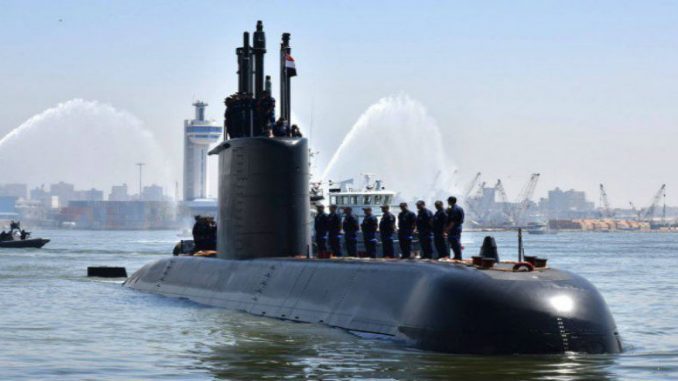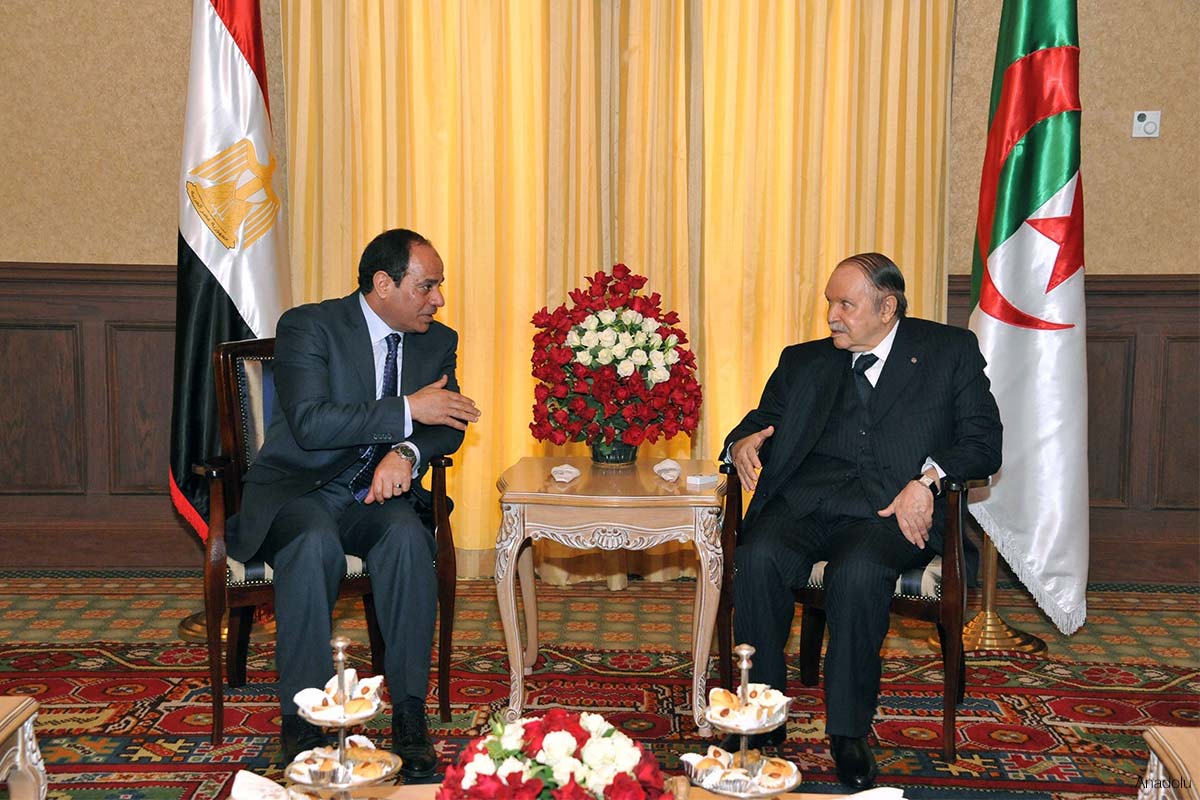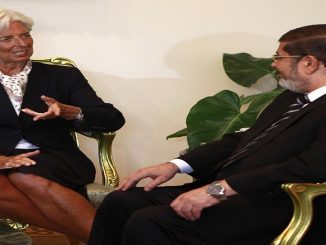
The Egyptian navy received on Wednesday the second Type-209/1400 submarine, according to local media reports. The ship is supplied by German shipbuilding company Howaldtswerke-Deutsche Werft to Egypt.
The German submarine arrived at Ras El-Tin in Alexandria on the Mediterranean coast. It can sail up to 11,000 nautical miles when surfaced and has a maximum speed of 21 knots.
Moreover, it has the ability to launch missiles and torpedoes and is reportedly equipped with the latest navigation and communication systems that can protect coasts, as well as the country’s waters.
Germany announced the naval submarine deal in 2012. Under the initial terms of the agreement, Germany would export four state-of-the-art military submarines,constructed by the company from the German city of Kiel, as assistance for Egypt’s navy. The first submarine arrived to Egypt in December.
Despite the difficult financial economic crisis, the Egyptian government signed several arms deals with European countries.
Stockholm International Peace Research Institute (SIPRI), an international think-tank based in Sweden, documented in a report that Egypt’s arms imports rose by 37% between 2006 and 2010, and 2011 and 2015.
SIPRI calculates that the value of arms transfers to Egypt in 2015 reached US$1.475bn, compared to US$686m in 2010 and US$368m in 2014.
Since 2014, Germany and Egypt have been working on a security cooperation agreement.
Al-Sisi also met with the German chancellor in May 2015 during his first official visit to Europe.
Moreover, many German officials have visited Egypt in the year 2016.
German Interior Minister Thomas de Maiziere has met with his Egyptian counterpart Magdy Abdel Ghaffar multiple times last year.
Maiziere has called Egypt an “indispensable ally in the fight against terrorism and illegal immigration.”
During the visit at the end of March, Maiziere discussed ways to enhance cooperation in areas such as security, counter-terrorism, airport security, and immigration.
Moreover, German vice-chancellor and minister of economic affairs Sigmar Gabriel announced that potential arms deal with Egypt during a press conference held in Cairo in April 2016.
Gabriel said at the press conference that “The Egyptian government did not ask Germany for a weapons deal during this visit, but there was a discussion about supplying two naval submarines. We are ready to fully cooperate with Egypt to secure its borders with Libya.”
In this context, Egypt and Germany have signed a number of security cooperation agreements last July.
The agreements address a number of areas, including illegal immigration, counter-terrorism, and securing airports.
Accordingly,Egypt’s Minister of Interior Abdel Ghaffar signed an intelligence-sharing agreement, an extradition agreement including Interpol Red Notice warrants and an agreement that would see Germany train Egyptian security personnel to investigate financial crimes.
In addition, Chancellor Angela Merkel met with Abdel Fattah al-Sisi in Egypt last March 2017 in her official visit to Egypt since the military coup in 2013.
During her visit, Merkel focused on security cooperation for limiting the migrant flows to Europe through North Africa, especially chaos-torn Libya.
In fact, European countries continue to arm Egypt’s al-Sisi despite the human rights abuses and violations in the country.
In May 2016, Amnesty International report condemned EU member states for supplying arms and equipment to Egypt despite the wave of unlawful killings, enforced disappearances and torture in the North African country, as reported by Amnesty.
The report said that despite the EU suspension on arms transfers to Egypt, almost half of European Union (EU) member states have violated the sanctions.
The report reads,”After hundreds of protesters were killed in a show of grossly excessive force by security forces in August 2013, 12 out of 28 EU member states have remained among Egypt’s main suppliers of arms and policing equipment. It is feared that EU Foreign Ministers could soon decide to scrap the current, already insufficient, suspension.”
According to Amnesty’s report, EU states authorized 290 licenses for military equipment to Egypt, totaling more than €6 billion (US$6.77) in 2014 alone. The items have included: small arms, light weapons and ammunition; armored vehicles; military helicopters; heavier weapons for use in counter-terrorism and military operations; and surveillance technology.
The EU countries who have been supplying arms to Egypt through exports or brokering since 2013 are: Bulgaria, Cyprus, Czech Republic, France, Germany, Hungary, Italy, Poland, Romania, Slovakia, Spain and the UK.
According to Privacy International, the Egyptian authorities were also supplied by companies from several EU countries, including Germany, Italy and UK, with sophisticated equipment or technologies destined for use in state surveillance, which Amnesty International fears may be used to suppress peaceful dissent and violate the right to privacy.
This month,Foreign Affairs magazine shed the light on the secret behind Europe’s armament to the Egyptian naval forces on its article titled: “Why Europe is floating Egypt’s navy?”
The Foreign Affairs described that the Egyptian navy has now the upper hand in the Middle East region.The American magazine pointed out that power of the Egyptian navy pushed other western countries to hold military exercises and conclude arm deals with Cairo.
Moreover,Germany also competed to play a role in establishing military partnership with Egypt after it declared that it will supply Egypt with four modern submarines.
It is noteworthy that Germany has rejected to hand over those submarines to Egypt several times before.
However, Germany’s stance has changed and it was clearly documented when Chancellor Angela Merkel described Cairo as the”Main Guard for Southern Europe”, which clearly justify Europe’s continuous support to Egypt’s naval force, as it believes that empowering Egypt will activate Europe’s plan in fighting terrorism and illegal migration in the Mediterranean Sea.
According to Der Spiegel, the German magazine, Chancellor Merkel tried during her visit to Egypt last March to convince Cairo to support the European-Turkish agreement which blocked the Balkan route against the Syrian immigrants.
The German magazine quoted a source close the Egyptian authorities saying that Berlin tried to win Egypt’s agreement to return the illegal immigrants back to Libya’s eastern border under the protection of its navy,but Egypt didn’t agree on this deal due to its threats form escalating the immigrants crisis in Libya.



